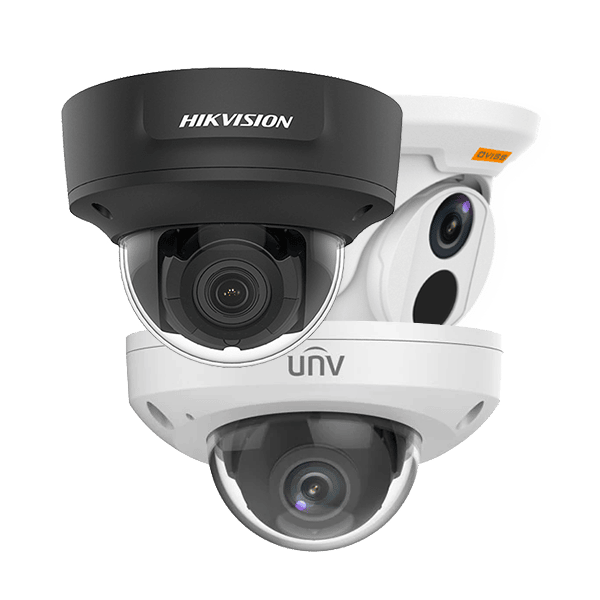Security is no longer an option—it’s a necessity, especially when protecting goods in storage or transit. With increased theft, damage, and unauthorized access, businesses need peace of mind when entrusting their valuable assets to a third party. Warehousing solutions focusing solely on storage capacity without emphasizing safety measures fail to provide true value. The true mark of a dependable logistics partner lies in its commitment to constant vigilance and robust access restrictions.
We will explore how around-the-clock monitoring and stringent access controls can redefine the meaning of warehouse security and offer reassurance to businesses large and small. This is more than just locking doors; it’s about intelligent systems working together in real-time to prevent risks before they happen. With its comprehensive approach, Fripp Warehousing near Kelowna offers a unique case study of how modern surveillance and access protocols can work seamlessly to keep your investments safe.
The Power of Round-the-Clock Surveillance
Modern warehouse environments require more than basic alarm systems—they demand an active and intelligent surveillance setup that works every second of the day. Fripp’s 24/7 monitoring serves as a technological guardian, using cameras positioned strategically to ensure that no blind spots are left unprotected. Each entrance, loading dock, and internal corridor is under constant watch, which not only deters potential theft and allowing rapid response in emergencies.
Unlike outdated systems that simply record and store footage, today’s surveillance setups offer live feeds and instant alerts, enabling real-time action. Beyond theft prevention, this also plays a critical role in monitoring employee safety, ensuring protocols are followed, and capturing data that can be used for performance audits. By embracing a security-first philosophy, warehousing facilities with continuous monitoring provide transparency and control, strengthening trust between storage providers and their clients. Surveillance in this context becomes both a shield and a tool for strategic oversight.
Access Control as a Gatekeeper for Risk Reduction
While surveillance acts as the eyes, access control functions as the hands, determining who can enter, when, and for what purpose. Fripp’s application of access control protocols ensures that entry to secure zones is granted only to authorized individuals, reducing the likelihood of internal and external breaches. Modern access control extends beyond keys and locks. It incorporates keycards, biometric scanners, and digital logs tracking real-time movement.
Every entry or attempted breach is logged, creating an unalterable history of who was present at a particular time. This record can prove invaluable during audits or investigations, especially when pinpointing responsibility is crucial. Furthermore, access control systems can be integrated with shift schedules, restricting entry outside designated work hours. Such precision in gatekeeping not only improves physical security but also supports accountability within the workforce. When combined with surveillance, access control creates a layered defense system that is proactive rather than reactive.
How Technology and Human Oversight Work Together
Security technology is powerful, but reaches its full potential when paired with trained human oversight. Fripp Warehousing demonstrates the importance of blending automated systems with responsive, observant personnel. Security staff who monitor feeds and manage alerts in real-time can distinguish between actual threats and false alarms—something technology alone still struggles to do effectively.
Moreover, trained teams can interpret behavioral patterns, identifying suspicious activity that may appear normal on the surface. These employees are essential in verifying credentials, responding to access issues, and coordinating with local authorities if a security breach escalates. In this balanced system, technology handles repetitive and high-volume monitoring, while humans make informed decisions that require context and judgment. The result is a dynamic security framework that adapts to changing conditions and continuously learns from past incidents. This human-machine collaboration ensures that even the most elaborate security setup remains grounded in common sense and vigilance.
Beyond Protection: The Business Benefits of Strong Security
A secure warehousing environment doesn’t just protect goods—it enhances business operations in multiple ways. Clients are more likely to form long-term relationships with companies prioritize asset security. Knowing that their inventory is safe allows businesses to operate more confidently and efficiently. Furthermore, stringent security practices can reduce insurance premiums, as they demonstrate lower risk to insurers. This can translate into significant savings over time for companies that handle sensitive or high-value items.
In addition, secure facilities often attract higher-value contracts, especially from industries like pharmaceuticals, electronics, or government supply chains that require strict compliance. Strong security protocols also streamline internal audits and compliance checks by maintaining consistent logs of activities and movements. At first glance, what might seem like an operational overhead becomes a strategic asset, adding credibility, reducing liability, and supporting long-term growth. In this way, surveillance and access control investments are not just about protection—they’re about future-proofing business stability.
In an era where the security of assets can directly impact a company’s reputation and bottom line, adopting a comprehensive surveillance and access control system is more important than ever. We’ve explored how continuous monitoring, intelligent access control, and the integration of human oversight create a secure warehousing environment that goes beyond traditional expectations. Fripp Warehousing exemplifies how a proactive, layered approach can build trust, reduce risk, and unlock broader operational benefits.
Security is not a static goal but an evolving process, and those who treat it as a priority are better equipped to adapt to future challenges. Whether handling seasonal surges or storing high-value goods, businesses need more than space assurance. With the right strategy, security becomes a protective measure and a competitive advantage that strengthens every other part of the supply chain.
Enjoyed this? Share this post with fellow fans and influencers, and be sure to check back regularly for the latest updates, insights, and news on all things simpcity!

